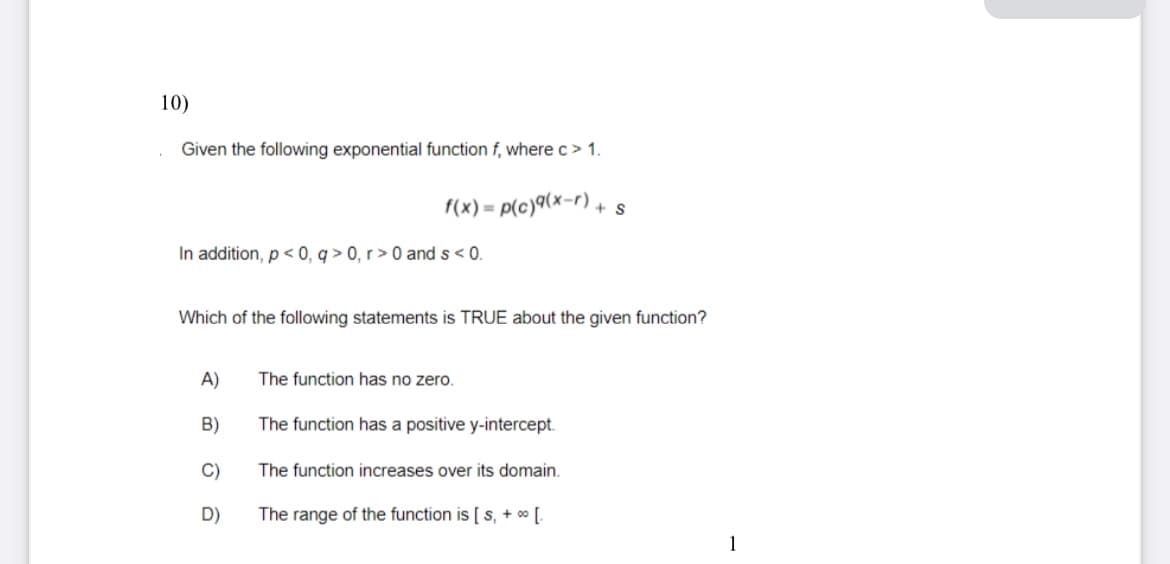10) Given the following exponential function f, where c> 1. f(x)=p(c)(x-r) + s In addition, p<0, q> 0, r>0 and s< 0. Which of the following statements is TRUE about the given function? A) The function has no zero. B) The function has a positive y-intercept. C) The function increases over its domain. D) The range of the function is [ s, + ∞ [.
10) Given the following exponential function f, where c> 1. f(x)=p(c)(x-r) + s In addition, p<0, q> 0, r>0 and s< 0. Which of the following statements is TRUE about the given function? A) The function has no zero. B) The function has a positive y-intercept. C) The function increases over its domain. D) The range of the function is [ s, + ∞ [.
Algebra & Trigonometry with Analytic Geometry
13th Edition
ISBN:9781133382119
Author:Swokowski
Publisher:Swokowski
Chapter5: Inverse, Exponential, And Logarithmic Functions
Section5.6: Exponential And Logarithmic Equations
Problem 64E
Related questions
Question

Transcribed Image Text:10)
Given the following exponential function f, where c> 1.
f(x)=p(c)(x-r) + s
In addition, p<0, q> 0, r> 0 and s < 0.
Which of the following statements is TRUE about the given function?
A)
The function has no zero.
B)
The function has a positive y-intercept.
C)
The function increases over its domain.
D)
The range of the function is [ s, + ∞ [.
Expert Solution
This question has been solved!
Explore an expertly crafted, step-by-step solution for a thorough understanding of key concepts.
Step by step
Solved in 3 steps with 1 images

Recommended textbooks for you

Algebra & Trigonometry with Analytic Geometry
Algebra
ISBN:
9781133382119
Author:
Swokowski
Publisher:
Cengage


Algebra & Trigonometry with Analytic Geometry
Algebra
ISBN:
9781133382119
Author:
Swokowski
Publisher:
Cengage
